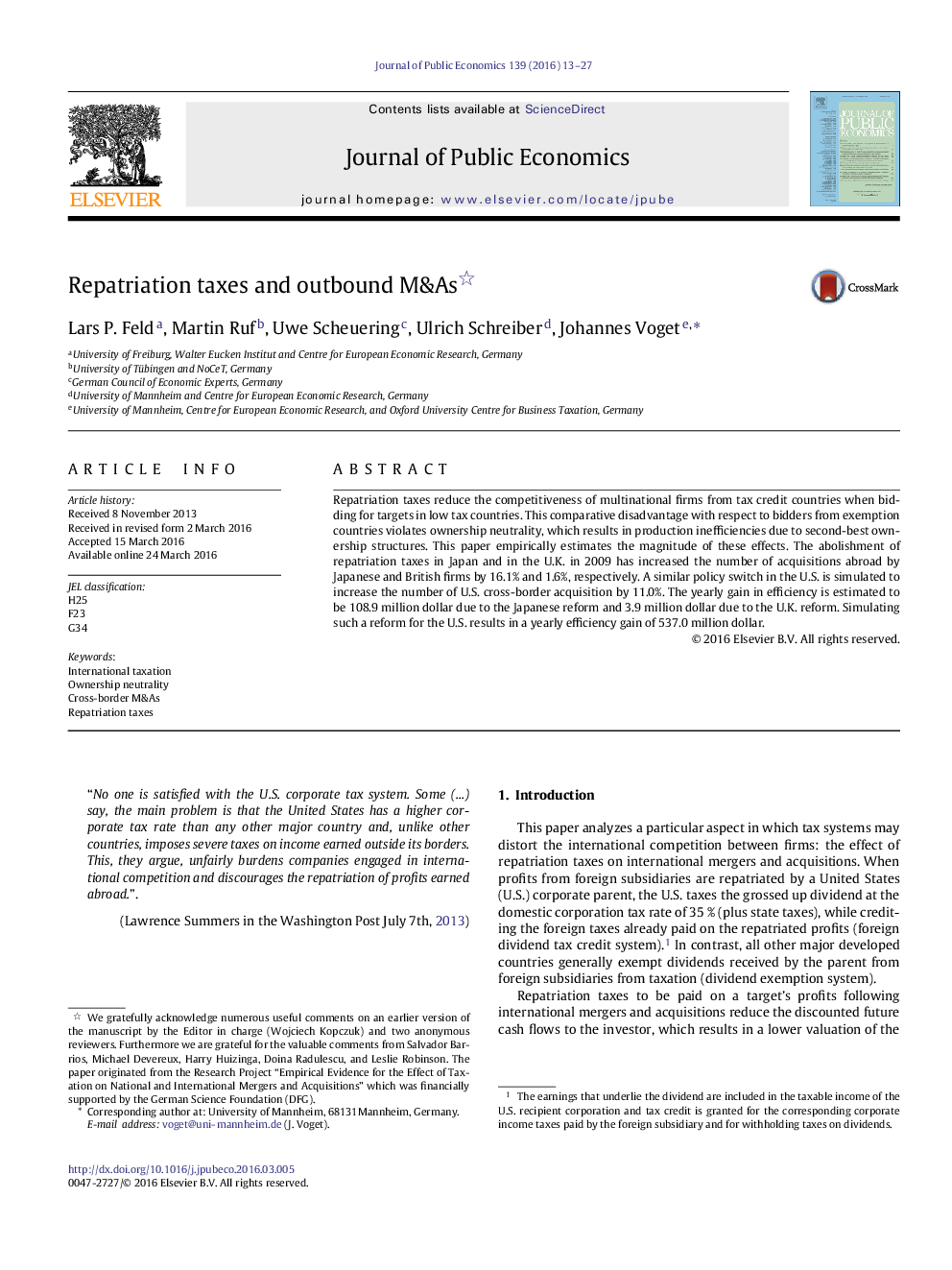| Article ID | Journal | Published Year | Pages | File Type |
|---|---|---|---|---|
| 968590 | Journal of Public Economics | 2016 | 15 Pages |
•Empirical analysis of the effect of repatriation taxes on cross-border acquisitions•Abolishing repatriation taxes increases the likelihood of acquiring foreign firms.•Identification of the effect is based on bilateral variation in the abolished tax.•Market for corporate control is distorted by differences in international taxation.•U.S. repatriation tax implies yearly loss of 537 million $ due to inefficient ownership.
Repatriation taxes reduce the competitiveness of multinational firms from tax credit countries when bidding for targets in low tax countries. This comparative disadvantage with respect to bidders from exemption countries violates ownership neutrality, which results in production inefficiencies due to second-best ownership structures. This paper empirically estimates the magnitude of these effects. The abolishment of repatriation taxes in Japan and in the U.K. in 2009 has increased the number of acquisitions abroad by Japanese and British firms by 16.1% and 1.6%, respectively. A similar policy switch in the U.S. is simulated to increase the number of U.S. cross-border acquisition by 11.0%. The yearly gain in efficiency is estimated to be 108.9 million dollar due to the Japanese reform and 3.9 million dollar due to the U.K. reform. Simulating such a reform for the U.S. results in a yearly efficiency gain of 537.0 million dollar.
